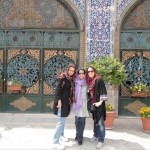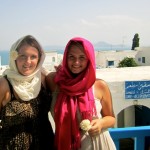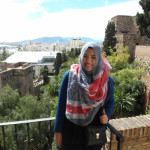Politics, Religion and Women in Egypt
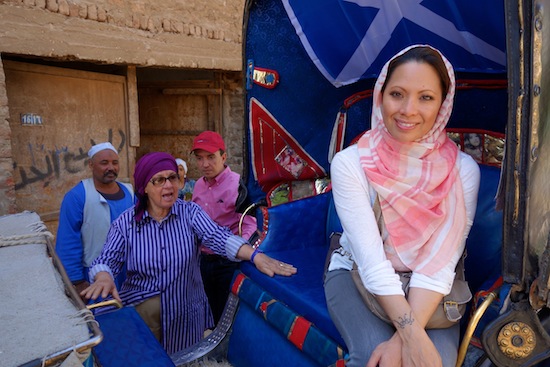
Two years after the Arab Spring, I traveled to Egypt with my partner Rick Steves. Ten days gave us ample opportunity to learn quite a bit about this beautiful and troubled, post-revolution country. Since that trip, the political and social scene in Egypt has changed drastically once more. My friends over there (both men and women) hold tight to their hope for positive outcomes…even if it takes longer than what anyone would prefer. While things are still in a state of flux, much of what I learned about this culture still holds true. I shared some of my experiences on my blog, www.thetravelphile.com, and am deeply grateful to Pink Pangea for sharing this one with its readership.
Politics, Religion and Women in Egypt
As a woman, I cherish the hard-earned rights, freedom, and respect that my gender enjoys in America and throughout the Western world. We’ve come a long way in the last century, but we still face challenges and work diligently to overcome them. And because we recognize the value and contributions of women, no matter where they live, we want all women to savor the same opportunities we have. Here in Egypt, I’m finding out that although the current definition of rights, freedom, and respect may seem to differ a bit here than where I come from, women are finding ways to express themselves loud and clear both religiously and politically.
Visiting various neighborhoods in Cairo, we met mostly Muslims and just a smattering of Coptic Christians, but you might not know who’s what just from looking. Naïvely, I subconsciously believed that any woman wearing a headscarf would be Muslim, and anyone not wearing a headscarf would be Christian. Our guide Hanna–a devout Muslim with liberal politics whose curly locks were hidden under a tight black wrap and a rhinestoned baseball cap–explained that many Coptic women also wear headscarves, and that wearing one is a personal choice for any woman.
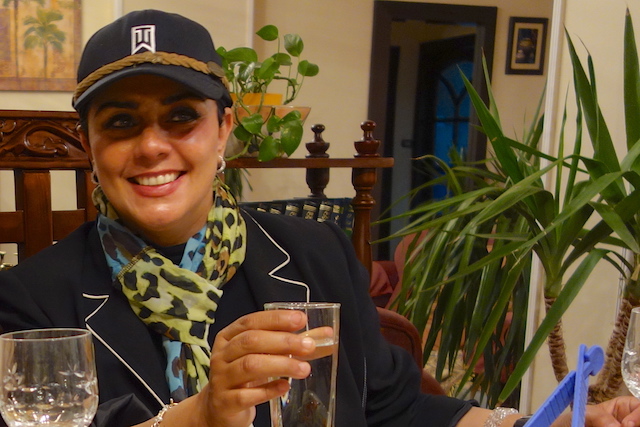
While Islamic tradition would have women appropriately covered in public except for their hands and faces, in practice, how Egyptian Muslim women interpret that tradition ranges from wearing no hair covering at all to dressing in the full hijab/burka (gown-like dress with a head covering that exposes only the eyes). Hanna quipped, “Some think they’re doing extra so they can earn more favor with God.”
Some think they’re doing extra so they can earn more favor with God.
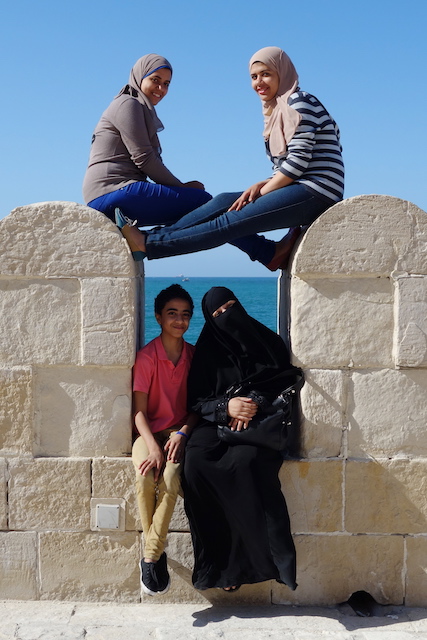
Wearing a sheer, florescent green headscarf that matched her white and florescent green sweater, twenty-something-year-old Marwa shared with me that how one dresses is an expression of individuality–and even rebellion–as much as it is of religion. In big cities like Cairo, Alexandria, and Luxor, I found myself entranced by the women’s visual expressions of religion and modesty: full hijab, primly wrapped headscarves accompanying black mumu-like galabayas that cover everything from the neck down, and modern attire with peek-a-boo bangs under scarves that look like they’re about to come undone. Scarves can be frilly, animal-print, or Technicolor, but all seem as much a stylish accessory as a symbol of devotion.
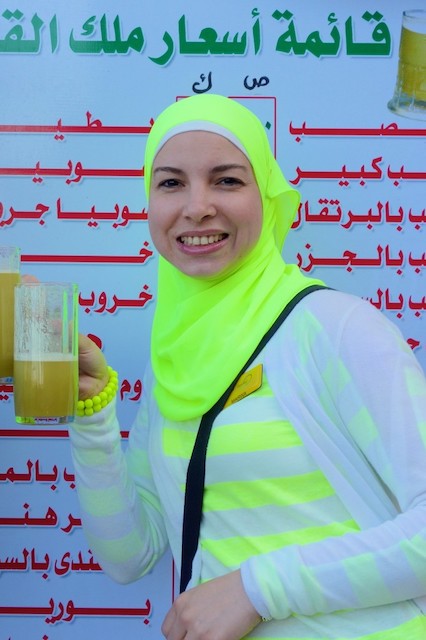
Only in the villages and countryside do you find practically everyone in all black and in the long, shape-hiding dresses that denote conformity to the conservative, where women are typically less educated and poor. Still, Marwa was confident that no Egyptian woman is forced to wear a particular type of garment, and rebellion against the norm is not exclusive to the less religious or the wealthy. In urban areas (which tend to lean liberal), extreme conservatism has flowered lately because rules have become less enforced in Egypt, not more, and women want to express their opposition to that trend. If how you express and whether or not you express your religion (and yourself) is a choice, women in Egypt–conservative and liberal–are exercising that right to its fullest.
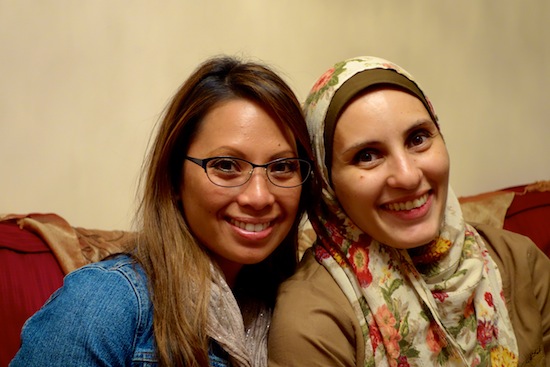
While how one dresses can correlate with one’s religion and how devout one may be, people I spoke with assured me that it’s irrelevant to how most Egyptians interact with one another. Degree of piety doesn’t prevent socializing with another group. Asking my Muslim friend Heba for her take on this (she chooses to dress modestly and to meticulously cover her hair in public or when her family has male guests who aren’t relatives), she agreed saying, “What you do and what you believe is between you and your God. It’s no one else’s business.” She also reminded me that under the long gowns and in the privacy of one’s home, a woman wears whatever she pleases.
Politics, Religion and Women in Egypt.

In a country where conservative attire is pretty standard, in my usual clothes, I would stand out like a sore thumb (whereas in the States, I mostly blend in). So, pants or long skirts with long-sleeve shirts were my daily uniform, and a fashionable scarf around my neck could quickly double as a headscarf when more modest attire was required in mosques, churches, or in certain private homes. I came to appreciate the practicality of wearing a headscarf (not having to fix my hair, protecting myself from the sun or wind). I felt comfortably more engaged with the people, and I think people appreciated me showing my heartfelt respect for their social and religious customs.
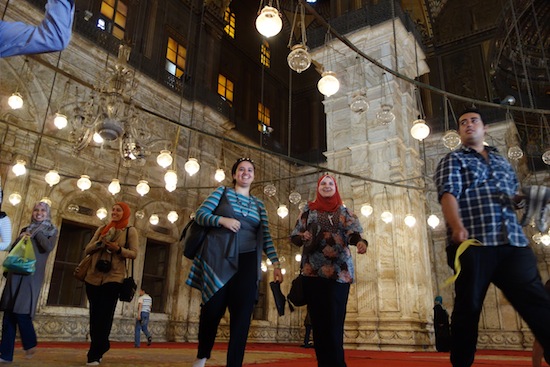
With respect to how I was treated as a woman, I really can’t complain. Most everyone I met–male and female–was not only courteous but genuinely friendly, too. Nonetheless, Egypt is a man’s world where women abide by a certain expected level of decorum in public, and I was conscious of that. Walking down the streets at whatever hour, I was mindful of staying close to Rick or our guide. Yet despite recent isolated yet horrific incidents or violence towards women, I never once felt like I was in danger or sensed any degree of animosity. Intermittent stares and barely audible comments from men like, “Hey, beautiful! Where you from?” or “Pretty lady, you Japan?” were about as lascivious as a middle-schooler awkwardly trying to flirt with his teacher. I’ve been treated worse on a New York subway train or walking through downtown San Diego.
Pretty lady, you Japan?
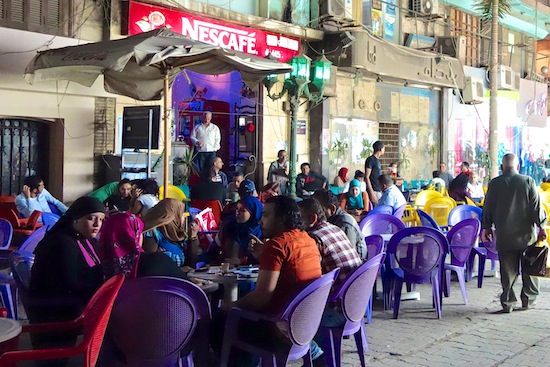
While the trunk of Egyptian society is rooted in long-held Islamic and Coptic Christian traditions of modesty, piety, and respect for order, it’s also feeling its limbs grow with nourishing access to the latest technology and fashions, international influences, and the burning–if somewhat dimmed–afterglow of a people’s revolution. It’s a complicated tug-of-war between what they’ve been accustomed to and what they now know is possible.
Because of their contributions and prominence in the Revolution (participating in demonstrations, having their opinions heard and supported), women, who rarely had a voice until then, are gaining confidence that their role is evolving ever forward. Even so, there are some in this country who would have them return to their “proper” place: Be seen and not heard, and don’t upset the pomegranate cart. This has manifested in serious assaults on and violence towards women during demonstrations at Tahrir Square. My friends here (male and female) give me various versions of these incidents–all condemn them, but each qualifies the events with varying degrees of blame on the individual attackers, mob mentality, and even the government itself.
Turning to Heba again, I asked whether she thought life for women has improved or worsened since the revolution. She told me, “Women in Egypt now realize that their voice matters, but conservative and extremely traditional groups want to keep us silent. It’s hard for us now, and some women have paid a terrible price. But we’ve tasted freedom, and we will never go back.”
Women in Egypt now realize that their voice matters, but conservative and extremely traditional groups want to keep us silent.
As a citizen of the world, it’s my responsibility to champion the rights of all people, but it’s also my challenge and duty to understand that my worldview–shaped by my experiences as an American woman–is not necessarily the right or only way to see things. Progress is an evolution. Sometimes it feels likes change happens overnight. Other times, things move so slowly that we can’t even perceive those transformations. But things do change…and usually for the better. Things are complicated but evolving here for women in Egypt–differently than they have in other parts of the world, but still in forward motion. We may not fully understand the cultural context but it’s fascinating to try and learn about it.
For a decade and a half, Trish Feaster has traveled throughout Europe, the Philippines, Central and South America, and in the good old U.S. of A. During her nearly fifteen-year tenure as a high school Spanish teacher in California, Trish shared her love of travel with her students by taking them on annual trips to Europe. These days, she’s expanding her “classroom” even more and working as a tour guide and guidebook researcher in Europe. You can follow her travel adventures at www.thetravelphile.com, “like” her Facebook page at www.facebook.com/thetravelphile and follow her on Twitter at @thetravelphile.
Women in Egypt: Politics, Religion and Women photo credits by Trish Feaster

